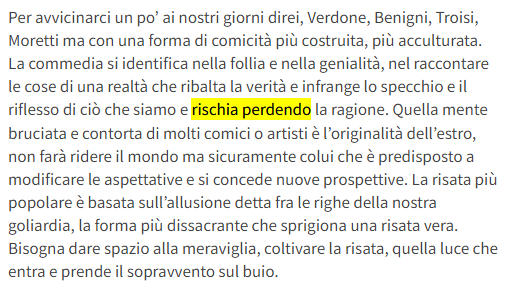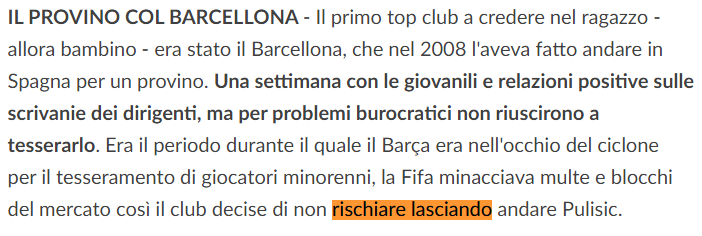[details=“English Translation”]Don’t risk insulting your boss.[/details] This Italian sentence doesn’t feel right. Is it grammatical? I want to use the infinitive because the risking and insulting are committed by the same person. I want to say, “Non rischi di insultare il suo capo.” My understanding of the use of the gerund is that it is always used with the verb “stare” or it describes an auxiliary action, like “Insulting the boss, he blushed bright red.” Can it be used this way?
Hi, doesn’t feel right does it. I would have put “Non rischiare di insultare il tuo capo”. Perhaps the Cloze version is used more in local conversation? Non lo so.
The gerund is more broadly used than you suggest.
-
Rischi perdendo tutto.
-
Rischi non passando l’esame.
Mille grazie per il gerund;-) !
I tried to borrow your method of comparing the number of search results for
“rischi di perdere”" vs. “rischi perdendo” but it didn’t work (or I was too clumsy):
I found lot of examples for “rischi di perdere” but when I exammined my search results for “rischi perdendo” I realized that they all were of the form “(i) rischi (i.e. a noun) perdendo” which is not what I was looking for.
My language search application of choice is Reverso. When I plugged in “rischi di perdere,” I got 154 examples. When I plugged in “rischi perdendo,” I got zero. When I turned it around and plugged in the English phrase “risk losing,” all of the examples used perdere rather than perdendo. Doing a web search for “when to use the gerund in Italian” led me to “when not to use the gerund in Italian.” There I found a lot of articles that were pretty emphatic about it not following another verb. They point out that it’s an easy trap for English speakers to fall into because you can use the gerund that way in English.
And yet, you come across rischiare + gerund in the Italian press again and again…
I am not English but French. Risquer + gerund is totally incorrect in French. We only use the infinitive clause and it is why that original Italian construction jumps at me every time I see it.
Another example:

I do wonder if Press speak (also advertising) is not always the most grammatical or “elegant”. I’m not so good at grammar issues and often go by the “feel” of a frase so it is interesting too read your “research”, così mille grazie.
